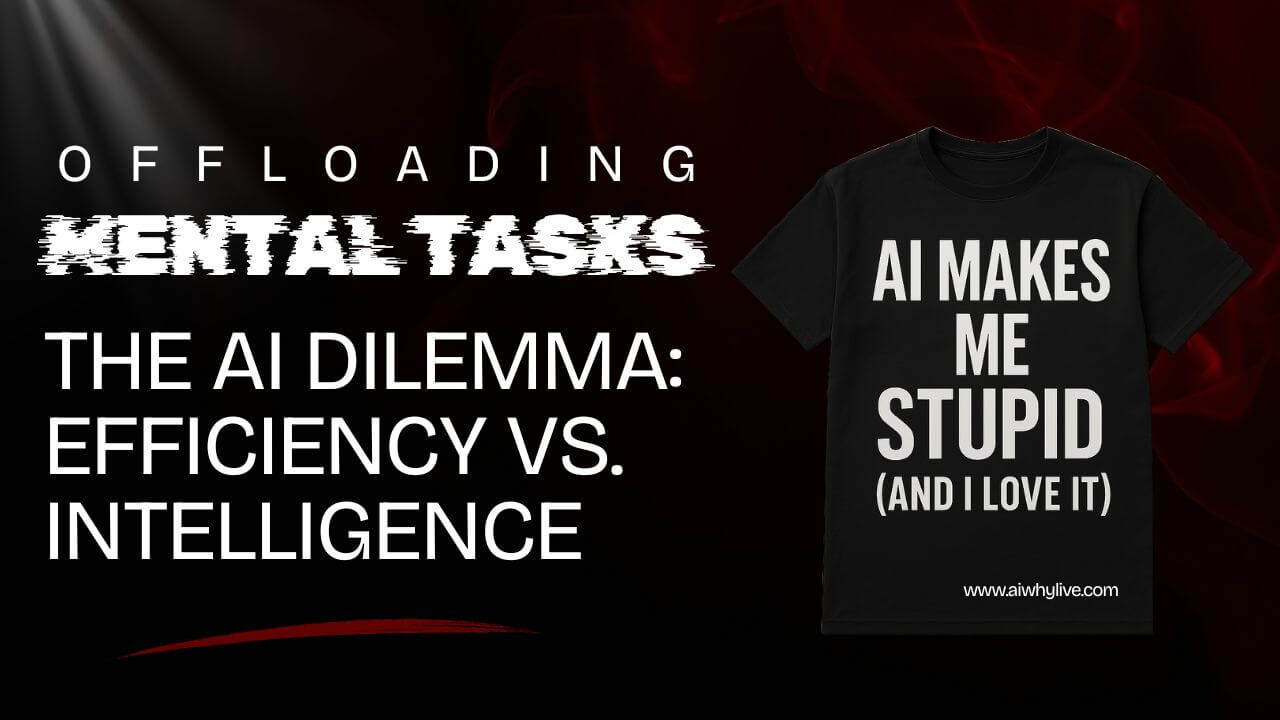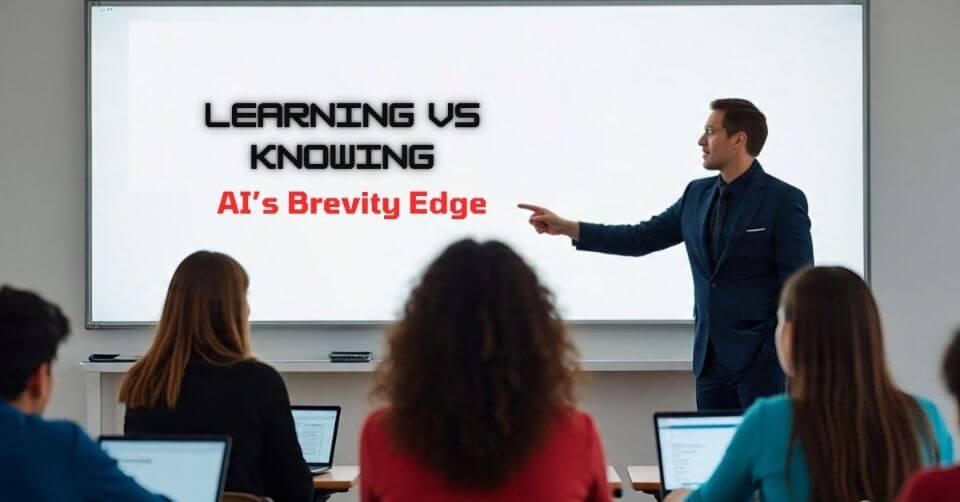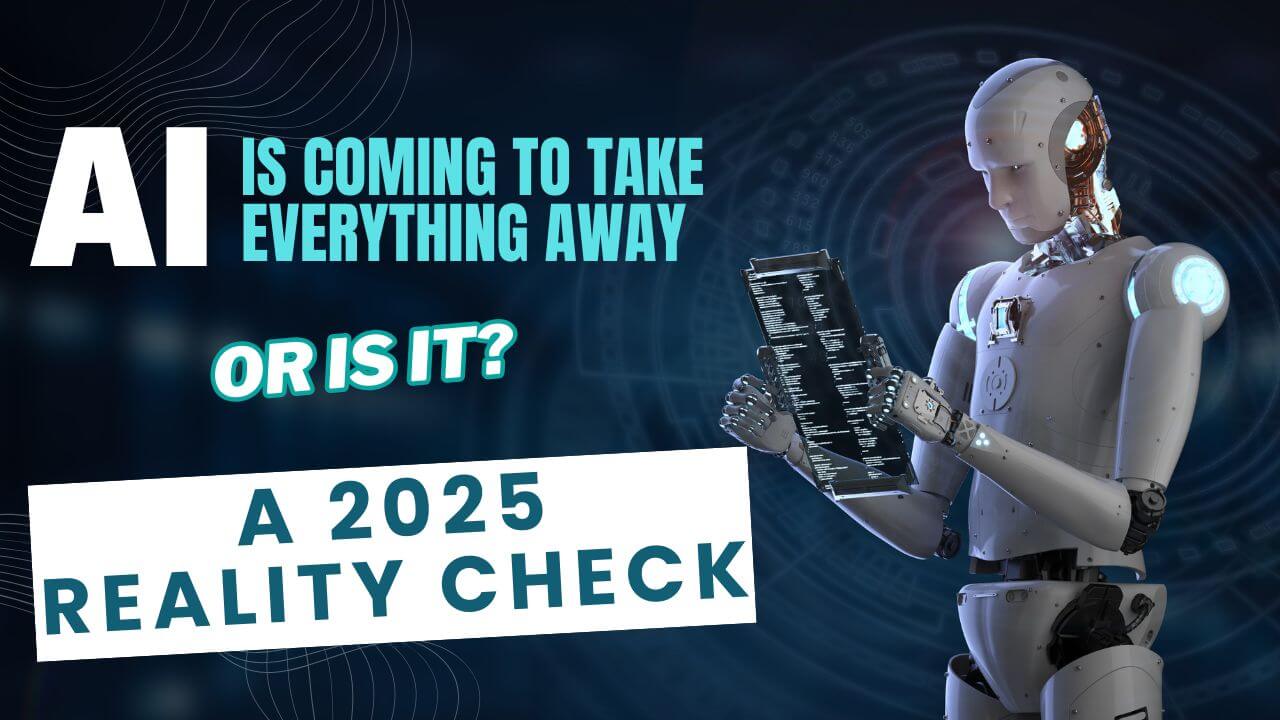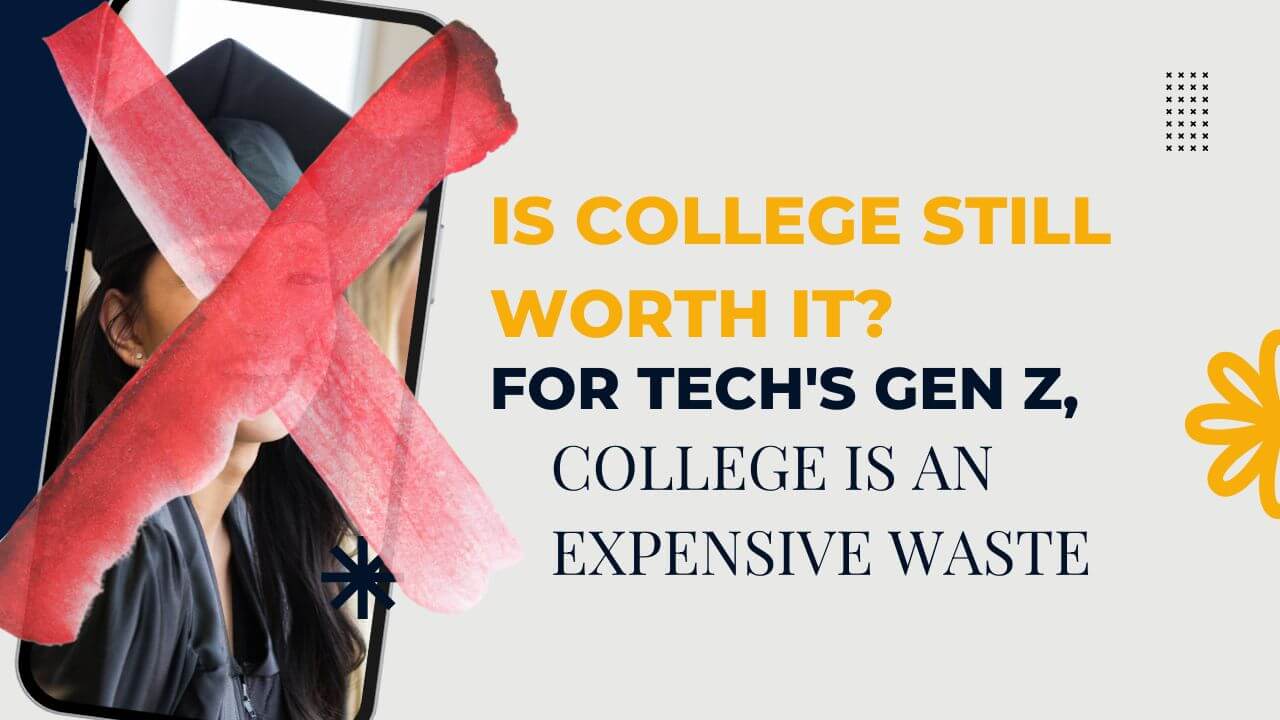We’re living in an age where learning used to mean long nights with textbooks. Today, it can mean a five-second ChatGPT prompt. Studying might once have been underlined pages, but now it’s watching explainer videos. And offloading? That’s passing the heavy mental lifting to AI.
As I confessed in “AI Makes Me Stupid—and I Love It”, something is alluring about being more efficient at the cost of remembering less. And in “Learning vs Knowing: Brevity Beats Verbose in the Age of AI”, the danger was laid bare: gathering facts fast isn’t the same as grasping deep meaning.
So, where do we draw the line between using AI to grow and letting AI make us complacent?
The New Learning Loop: Studying + Offloading
Once upon a time, studying was a slow climb. You wrote notes, forgot, reviewed, puzzled, and practiced. You learned by doing, failing, and trying again.
Now, with AI, that loop is short-circuited. You ask, AI answers. You skim, AI summarizes. You forget, AI reminds. It’s efficient, seductive. It feels like progress.
But relying too much on offloading mental tasks comes at a cost:
- Shallow retention: With AI doing the recalling, highlighting, and summarizing, your brain may stop building strong memory paths.
- Fewer moments of struggle: Those frustrating “I don’t get this yet” moments often teach more than ease and speed ever could.
- Overconfidence: Knowing lots of facts doesn’t always mean knowing what matters. (As Learning vs Knowing warned.) AI Why Live
Why Offloading Isn’t All Bad
Yet, offloading isn’t the enemy. In “AI Makes Me Stupid—and I Love It”, the core idea was not to demonize ease, but to embrace productivity when used well.
Here’s what’s good about it:
- Focus on what matters: Let AI handle repetitive work so you can think about bigger problems.
- Speed and scope: You can survey more material, explore more subjects, and try more ideas in less time.
- Enhancing creativity: When not weighed down by grunt work, your mind has room to imagine, question, and synthesize.
Balancing Between Learning, Knowing, and Offloading
How do we stay sharp without burning out? How do we let AI empower us, not replace us?
- Active engagement: Don’t just request facts. Ask AI to quiz you, to teach you back, to give analogies. If you can explain it to someone—or to yourself—you’re moving from learning to knowing.
- Brevity with meaning: As explored in Learning vs Knowing, concise summaries, micro-takeaways, TL;DRs that force you to grasp the kernel.
- Retain the struggle: Deliberately try tasks without AI. Force your brain to wrestle with the problem.
- Use AI as a tutor, not a replacement: Let it assist, not do everything. Use it to amplify, not overshadow.
Too Cryptic? Explain Like I’m 12
Imagine you’re building a Lego house. Learning is reading the instructions. Knowing is building the house yourself and seeing it stand. Offloading with AI is like having someone else build parts for you. You see the house, but you don’t feel the bricks in your hands.
Final Thought
In the AI era, learning, studying, and offloading are three sides of the same coin. The power is in choosing which side to flip.
Will you let AI carry your thinking—or use it to sharpen your mind? If we’re wise, we’ll use AI not just to gather knowledge, but to own it, live it, and let it transform us.
Because in the end, being smart isn’t about how much you can skim—it’s about how much you can know.







